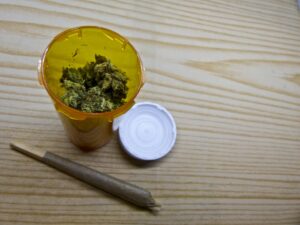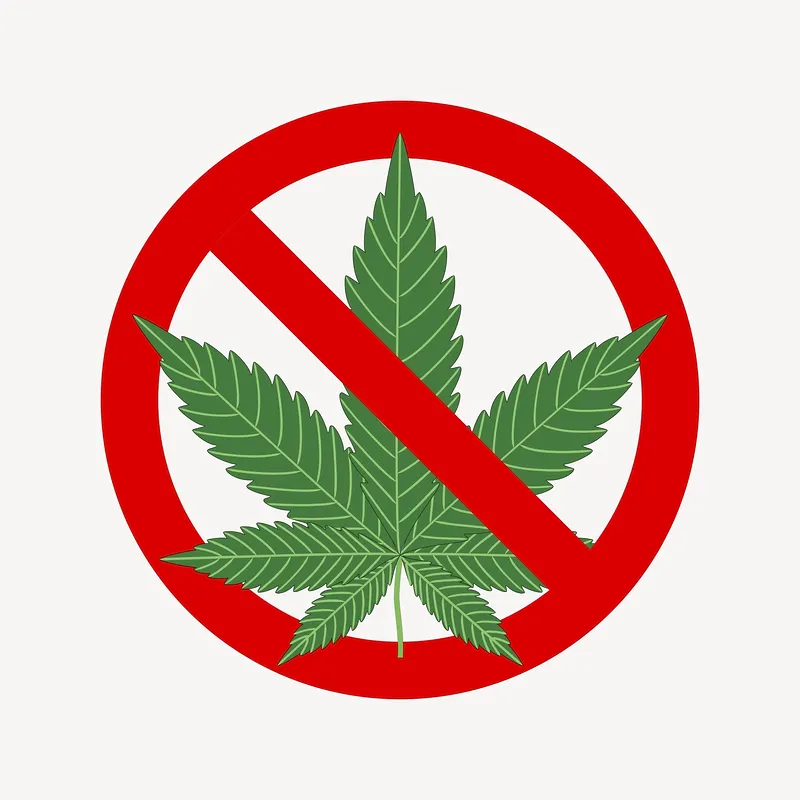When writing “Should marijuanas be legalized argumentative essay,” the writer needs to research and present arguments both for and against the legalization of marijuana, and then argue for their own stance on the issue. The topic of legalizing marijuana is a controversial one, and there are many arguments that can be made for and against it.

should marijuana be legalized argumentative essay
Should marijuanas be legalized argumentative essay
Marijuana or cannabis is a popular and controversial drug. Pot, weed, ganja, dope, and herb are examples of other names for marijuana. The drug is extracted from the cannabis plant and is mainly used for recreation or medicinal purposes. It is also used for religious purposes, especially with followers of the Rastafarian movement. The plant comprises numerous components, such as tetrahydrocannabinol (THC), responsible for its psychoactive characteristic. Some of the ways to take marijuana include smoking it directly (commonest), drinking it in a drink, and consuming marijuana-infused foods. According to a National Institute on Drug Abuse (NIDA) study, cannabis is the most abused drug in the United States. Although many American states have legalized marijuana for recreational or medical use, possessing the drug remains illegal according to federal law. Marijuana has been around for many centuries, but very few individuals have a comprehensive understanding of it. Most people associate it with nothing more than getting people high, and with this bad reputation, the topic of whether it should be legalized is very opinionated. The benefits of marijuana are significant enough to legalize the drug and enact appropriate measures to ensure it is consumed responsibly.
Note the amazing ‘should marijuanas be legalized thesis statement’ above. Cheap assignment helper advises you to watch the below video to learn how to write impressive thesis statements.
Misunderstandings and myths surrounding cannabis is the primary reason behind the opposition to the legalization of weed. However, this is gradually changing as people become enlightened. With the revelation of the medical benefits allied to marijuana, public opinion about the drug has changed. The percentage of those supporting the ban on weed has significantly declined in recent years. People who are undecided about marijuana will have made up their minds on where to stand on the subject after reading this essay.
Should marijuanas be legalized pros and cons
Reasons why to legalize (Pros)
Cannabinoids are chemicals related to THC and have a mind-altering effect. Cannabinoid does not make people “high.” It is useful in reducing pain and swelling, controlling epileptic seizures, and possibly even treating mental illness and addictions (National Institute on Drug Abuse). Although marijuana is not strong enough to ease intense pain s such as a broken bone or post-surgical pain, it is useful for chronic pain. Chronic pain is rampant amount Americans, especially as they age. Marijuana serves as a super substitute for opiates because it is safer, impossible to overdose, and less addictive. Patients with chronic pain are vulnerable to exceeding their opiate intake, which exposes their health to other severe side effects. Marijuana is also useful in easing the pain of sclerosis and nerve pain. In this field, few alternatives are present, and the few that are there are highly sedative (Grinspoon). Also, patients have reported that when under medicinal marijuana, they could resume their daily activities without feeling disengaged and completely out of it (Grinspoon). Weed not only eases pain but also allows patients to continue with their lives as healthy individuals. The THC in marijuana reduces nausea and increases appetite. It can help individuals with weight loss or malnutrition. And the good side of using weed as an appetizer agent is that it is natural, without artificial chemicals that can have side effects.

The government should legalize marijuana because it is safer than many legit drugs. Most people do not notice that weed’s side effects are lesser than those of other popular drugs and substances. For instance, the effects of tobacco are far worse than marijuana. Smokers of tobacco are vulnerable to lung cancer and also endanger the health of those around them. On the other hand, no scientific evidence shows a relationship between marijuana and lung cancer. Another legal drug that is too severe is alcohol. Consumption of alcohol is directly or indirectly associated with the cause of the thousands of deaths recorded each year globally. But there is no annual record of death cases caused by marijuana.
The legalization of marijuana will lead to an increment in smoking and the likelihood that drinking will decline. People consume alcohol in pursuit of the same feeling that marijuana offers; therefore, these drugs are substitutes for one another. If this substitution effect is large and alcohol consumption decreases, public health will significantly benefit (Graham). The social costs associated with the abuse of alcohol are very high. Alcoholism can lead to bankruptcy and homelessness. Most of the homeless people addicted to alcohol cannot make anything of themselves because, for each penny they get, all they think of is going to the liquor store. According to a study conducted by the Centers for Disease Control and Prevention, it is approximated that about 88,000 people in the United States die from excessive alcohol consumption each year. Other consequences of the drug include violence, injuries, cirrhosis, and increased possibility of cancer.
Many people have a wrong perception of marijuana addictiveness. Trying weed once cannot get someone hooked on using it. The dependence percentage of marijuana is 9.5 %. For cocaine and heroin, it is double. Tobacco is the most addictive substance, yet it is legal. If more people knew this, the opposition to legalizing marijuana would reduce. If the likes of alcohol and tobacco are not forbidden, but the law is used to govern their consumption, then the same can be done with marijuana.
Lifting the ban on marijuana could boost the economy. Governments could reap a lot of revenue from taxes and invest in other economic sectors, such as tourism and food security. The economy will also grow following the creation of employment in farms, transportation, and the processing industry. The cannabis plant does not require intensive capital to farm, but its returns are relatively high. Therefore, many people unemployed people will take advantage of the opportunity and start making a living. The legalization of marijuana is likely to reduce the dependency ratio significantly. Lenders, builders of retail outlets, and players of industries that will cater to the cannabis industry will also benefit from the legalization.
About 116 million Americans suffer from chronic pain, which costs the nation over $600 billion annually in lost productivity and medical treatment (Webb and Webb 110). These costs will be significantly reduced if the law approves the use of marijuana. The funds spent accommodating persons incarcerated on minor drug offenses could also be saved (Guenther). The United States has scarce correctional facilities, and the few that are available are over-congested. This issue can be resolved by legalizing marijuana because quite a significant population of prison detainees is there because of possession of the drug.
Legalizing marijuana will restore racial balance since the prohibition disproportionately impacts people of color. Although both black and white people consume weed, on average, a black citizen in the United States is three times more likely to be arrested for possessing marijuana. Sadly, marijuana possession convictions detect people’s ability to get financial aid, public housing, loans, and jobs. This attributes to the disparity of people of color as they are mostly convicted for reasons allied to marijuana.
The drug cartels are powerful because of the prohibition of drugs. If marijuana was declared legal, then these drug cartels would experience a significant reduction in profits, which would reduce their power and influence. The drug cartel leads to the formation of gangs that misuse youths in the trafficking business and other crimes. But if weed was legal, these gangs will be insignificant, and the crime rate will decrease. Currently, governments spend a lot of resources monitoring black markets that deal with the dissemination of drugs. Approving the use of marijuana will phase out black markets and cut the cost channeled to border patrol services.
Opposition (Cons)
Opponents of marijuana argue that long-term use of the drug will lead to addiction. Roughly 9% of the people who experiment with marijuana become addicts (Volkow et al. 2). One out of six teenagers who try marijuana becomes addicted as well. Persons that are addicted to marijuana cannot help themselves with the urge to burn a blunt. Addicts suffer from cannabis withdrawal syndrome, which is characterized by symptoms such as dysphoria, irritability, craving, sleeping difficulties, and anxiety. These conditions make cessation difficult and increase the probability of a relapse. The use of marijuana is troublesome, specifically among adolescents. Teenagers are more vulnerable to adverse long-term cannabis consumption outcomes because their brains are undergoing active development during that time.

Another reason for the opposition to the legalization of marijuana is its effects on memory, attention, and learning. Daily smokers of marijuana function at a reduced intellectual level. If a student uses marijuana, he /she will perform poorly in academics compared to nonsmoking peers. Marijuana is known to give a relaxing feeling, which makes people reluctant to execute their obligations. For instance, a student who smokes weed might spend his evening engaging in recreational activities (because of feeling ‘high’) instead of studying. The use of marijuana is also associated with adverse consequences in the workplace, such as the increased risk of injury or accidents (National Institute on Drug Abuse). In a workstation setting, workers who test positive for marijuana have a high level of absenteeism, exposure to injuries, and industrial accidents than workers who do not consume the drug.
The legalization of marijuana could lead to more road recklessness and accidents. The drug impairs the ability to calculate time and judge speed and distance. It also reduces the reaction time, making a driver slow to track moving objects. Consumers of marijuana are likely to cause accidents because they do not know at what speed they are moving or how far they are from others passing by vehicles. Based on a recent survey of night drivers, 8.6 percent tested positive for marijuana (CNBC). The implication of this is that if the drug is legalized, more people will be driving under its influence hence making the road more unsafe. Marijuana is a gateway drug, meaning once a person tries it, he or she is more likely to try harder drugs. Weed is closely associated with drugs such as heroin and cocaine, which are not only more addictive but have severe health complications. Therefore, lifting the ban on marijuana would increase the number of people who try marijuana and, eventually, other harder drugs. If this was to happen, more pressure would be put on the medical system, among other social costs.
Another reason why marijuana should not be legalized is that it will encourage people’s exploitation, especially minors for profit. Investors will want to make more profits from marijuana and will not consider ethical codes while conducting their operations. Weed will be availed to those under the required age so long as they have the money to buy it. The same menace is witnessed with alcohol, and with marijuana, it is likely to be worse before appropriate measures to curb it are implemented. Considering marijuana is available in kid-friendly forms such as lollipops and cookies, its legalization will encourage abuse. Also, people who disapprove of the drug will easily fall victim to consuming it unknowingly. Legalizing marijuana will not banish black markets and drug cartels. Most of the drug cartels are well-resourced and connected; therefore, they will create barriers for other legitimate retailers to operate independently. These drug cartels could also use marijuana to hide their other illegal businesses. The legalization of weed will offer good cover for disseminating harder drugs.
Although the shortcomings associated with legalizing marijuana, it is still appropriate. Marijuana is medicinal and cheaper compared to some pharmaceutical painkillers. Apart from creating job opportunities, the drug is also believed to open up people’s minds. The drug encourages the formation of bonds, and in these bonds, people are free and more social, which allows them to share ideas freely. Consumers of marijuana connect concepts that other typical people would render unrelated. It is, therefore, correct to say marijuana enhances creativity. Evidence to show this can be seen from celebrities that have come out saying weed helps them meditate and create ideas. Life is full of many challenges that can be stressful; marijuana can help cope with these frustrations. In regions where the drug is legal, people use it because it aids in relieving stress. People are currently sentenced to jail and discriminated against because of consuming marijuana, yet they did not harm anyone. Putting a person in jail with criminals for offenses such as rape, robbery, and murder could worsen his/her character instead of amending it. Incarcerating people for possessing marijuana attributes to the formation of jail gangs. These gangs source their finances from supplying marijuana in prison illegally. With the legalization of marijuana, these gangs will not be resourceful, which translates to less power and influence.
Conclusion
After the legalization of marijuana, the shortcomings associated with it should not be neglected; instead, counter-policies should be implemented. For instance, if more teenagers are consuming the drug, the government should enact strict regulations that forbid and prevent under-ages from accessing the drug. More awareness about the side effects should be spread. Responsible consumption of marijuana, especially for medicinal purposes, is not wrong. Marijuana is better than other drugs used for recreation; therefore, its legalization will discourage many people from consuming the other drugs. Tobacco and alcohol reduce consumers’ life expectancy, but if these people opt to use marijuana responsibly, no severe health complications are likely to befall them. It is high time marijuana is legalized after all; the truth is that many people use the drug in secrecy.
Works Cited
CNBC. “Why We Should Not Legalize Marijuana.” CNBC, 20 Apr. 2011, www.cnbc.com/id/36267223. Accessed 17 Oct. 2020.
Graham, Ruth. “Is Marijuana Good for Public Health?” JSTOR Daily, 8 Oct. 2014, Accessed 17 Oct. 2020.
Grinspoon, Peter. “Medical Marijuana.” Harvard Health Blog, 10 Apr. 2020, www.health.harvard.edu/blog/medical-marijuana-2018011513085.
Guenther, Alan. “Legalizing Recreational Marijuana: A Board of Education Perspective.” New Jersey School Boards Association, 11 Feb. 2019, njsba.org/news-publications/school-leader/jan-feb-2019-vol-49-no-4/legalizing-recreational-marijuana-a-board-of-education-perspective/. Accessed 17 Oct. 2020.
National Institute on Drug Abuse. “How Does Marijuana Use Affect School, Work, and Social Life?” NIDA, 11 June 2020, www.drugabuse.gov/publications/research-reports/marijuana/how-does-marijuana-use-affect-school-work-social-life. Accessed 17 Oct. 2020.
—. “Marijuana As Medicine DrugFacts.” NIDA, 5 July 2019, www.drugabuse.gov/publications/drugfacts/marijuana-medicine. Accessed 17 Oct. 2020.
Volkow, Nora D., et al. “Adverse Health Effects of Marijuana Use.” New England Journal of Medicine, vol. 370, no. 23, 2014, p. 8.
Webb, Charles W., and Sandra M. Webb. “Therapeutic benefits of cannabis: a patient survey.” Hawai’i journal of medicine & public health, vol. 73, no. 4, 2014, pp. 109-111. Accessed 17 Oct. 2020.